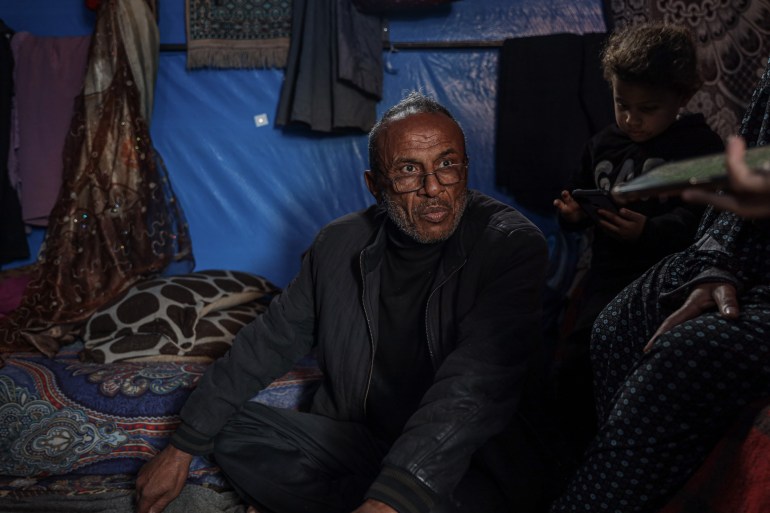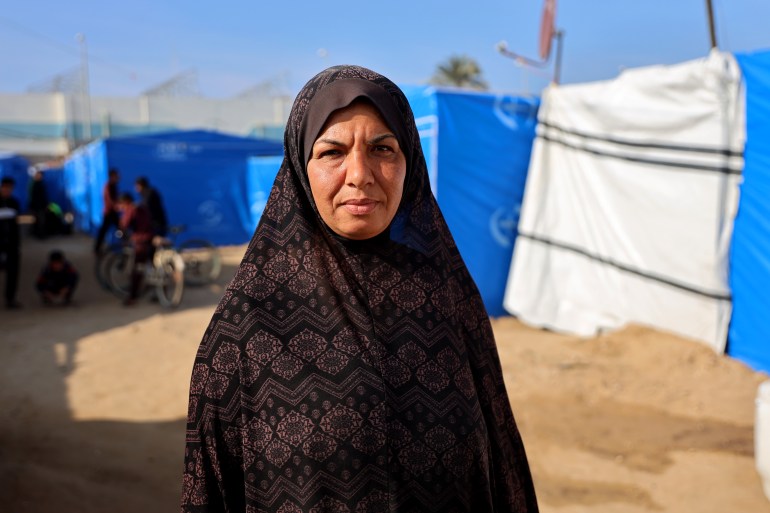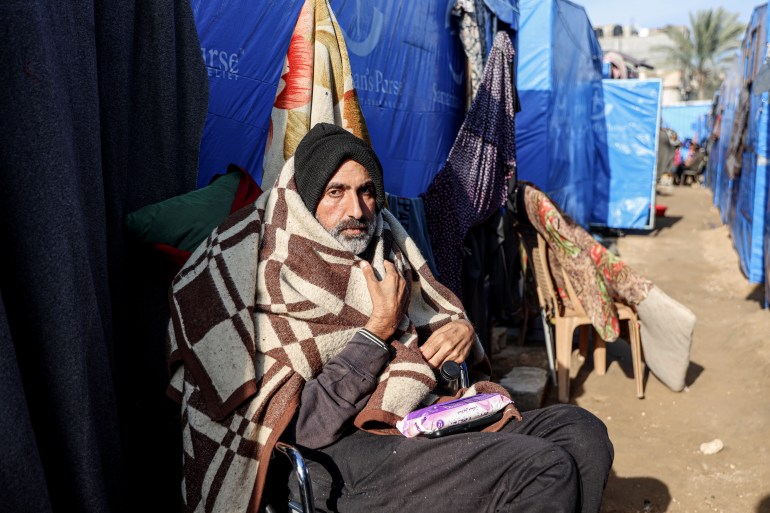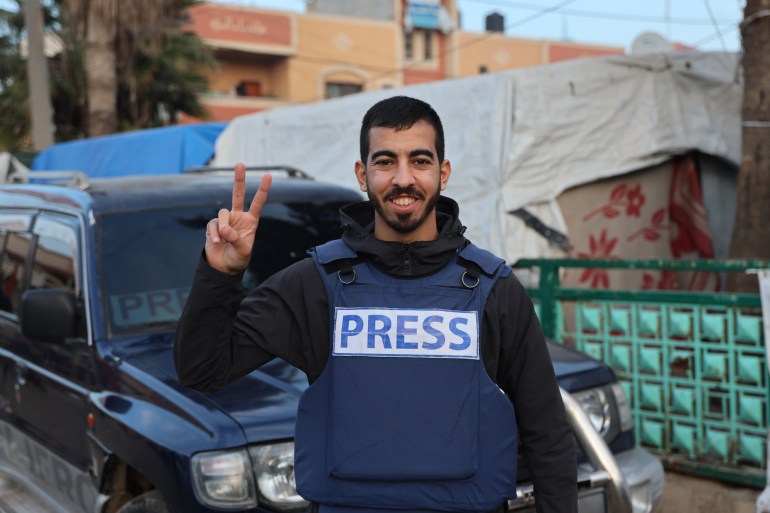Deir el-Balah, Gaza Strip, Palestine – Palestinians in the Gaza Strip woke up on Thursday to the sound of renewed bombing, adding trepidation to the joy they felt at the news that a ceasefire had been agreed between Israel and the Palestinian group Hamas the night before.
They hope that announcement will mean an end to Israel’s 15-month war, which has killed more than 46,700 Palestinians and left thousands more missing. But their memories of the war will not go away any time soon.
In Deir el-Balah in central Gaza, many people are displaced from other areas of the enclave after fleeing their homes in the wake of Israeli attacks or Israeli orders to leave or face bombing.
They have struggled to survive. Many have lost their nearest and dearest and feel lucky to be alive. But what comes next is still unknown. And with the devastation across Gaza so evident and Israel seemingly unwilling to leave the territory alone, many pitfalls lie ahead in the future.
Al Jazeera spoke to people in Deir el-Balah the day after Wednesday’s announcement of the ceasefire as they await its implementation on Sunday. Here’s what they had to say:
More trauma is yet to come

Nahed al-Wer is a psychiatrist displaced with his family from the Bureij refugee camp at the start of the war after his home was destroyed. He now works at the Deir el-Balah clinic and also volunteers in his own time to meet people seeking psychological help for the traumas they have gone through during the war.
It feels very nice. We’re so happy. It feels like it’s Eid. We hope this feeling remains forever and that we don’t see any more bloodshed. We hope that we don’t see it again and that we won’t have to live through this experience again. We all lost people. I lost my brother, my nephew, my other nephew and another relative.
I’m worried that in the coming days we will see more escalation. This is the nature of the Israeli politicians. Before signing a ceasefire or before a ceasefire comes into effect, they continuously try to escalate the killing more and more. The pace of the killing intensifies. In 2014, on the last day of the war, I lost my sister and her children.
There is still a great concern that the Israeli leadership might backtrack on agreements, and the pace of the killings has increased in the last two or three days, so I pray to God that this does not happen.
After the war, there will be a large number of people suffering from very difficult psychological conditions – from tensions and phobias and the fears they have lived through. It’s possible that these conditions and psychological fatigue could even get worse and develop beyond depression.
There must be treatment for these people. Even a few days ago, I had a case of an elderly woman whose son passed away. She was suffering from severe mental health problems and began psychiatry sessions to aid her situation.
‘We lost many dear and precious people’

Yasmeen al-Helo is a mother of one originally from Shujayea, a suburb of Gaza City. She was displaced to Deir el-Balah a year ago.
Honestly, my feelings are indescribable. It was a great joy, I cried and was happy at the same time. I cried over the things that happened to us. It wasn’t easy, and there is a lot of sadness. People’s hearts are wounded. The experience was a heavy burden and very difficult.
We lost people. Some are missing, some were taken by the [Israeli] occupation and some were martyred. Generally, I’m happy that the bloodshed and violence are going to stop, but at the same time, I’m sad because we’ve lost many dear and precious people. But it happened, and all you can do is pray to God.
God willing, the ceasefire won’t collapse and will continue this time. Honestly, I would have preferred an immediate ceasefire because these two difficult days have been worse than the whole of the past year. They want to intensify the bombings and the madness that they are doing.
Hope for treatment abroad

Mohammed al-Mudawwi was receiving physical therapy for a spinal injury that had paralysed his legs at al-Amal Hospital in Khan Younis when he says he was taken by Israeli forces and accused of involvement in the Hamas-led October 7, 2023, attacks in southern Israel, which he denies. He explains that he was held in detention in January 2024 for about a month, during which he was beaten.
The treatment was very bad. As a result of the medical neglect, I developed ulcers. I wasn’t allowed to move. When they would lay me on my right side or my left side, they wouldn’t turn me, and I developed the ulcers because of that. My hands became blue as a result of the constant pressure from the handcuffs.
My health deteriorated with the lack of nutrition. They didn’t feed us. We were blindfolded. We had no idea what they were making us drink. They even cut my feet to see if I could feel them or not. When I started to bleed, there was no care to bandage it. I hope that since I’m disabled, I can now be referred for treatment abroad.
I’m now optimistic and hopeful because of the ceasefire. Yesterday was the first time I laughed since the war started. This moment is wonderful, especially for my children. God have mercy on the souls of the martyrs.
‘We will never be able to forget’

Saleh Aljafarawi is a 27-year-old journalist who was displaced from northern Gaza during the war. He has become well known in Gaza for his videos covering the war and says he has received numerous threats from Israel for his work.
It was a bad experience, one of the worst I’ve lived through during my life. All the scenes and situations I went through during these 467 days will not be erased from my memory. All the situations we faced, we will never be able to forget them.
But the feelings of joy today with the end of this war make us forget – even slightly – what we have lived through. May God maintain security and safety for us in the Gaza Strip. After the war ends, we will return to the northern Gaza Strip, even if our homes are destroyed and nothing is left of them. God willing, we will rebuild them.
We paid a high price in this war. We lost our colleagues, we lost our families, we lost our friends. We were deprived of the simplest things you can imagine. We were deprived from being with our families for 467 days.
Honestly, I lived in fear for every second, especially after hearing what the Israeli occupation was saying about me. I was living life second to second, not knowing what the next second would bring.
There’s still two days left [until the ceasefire], and hopefully God will make it easy for us.